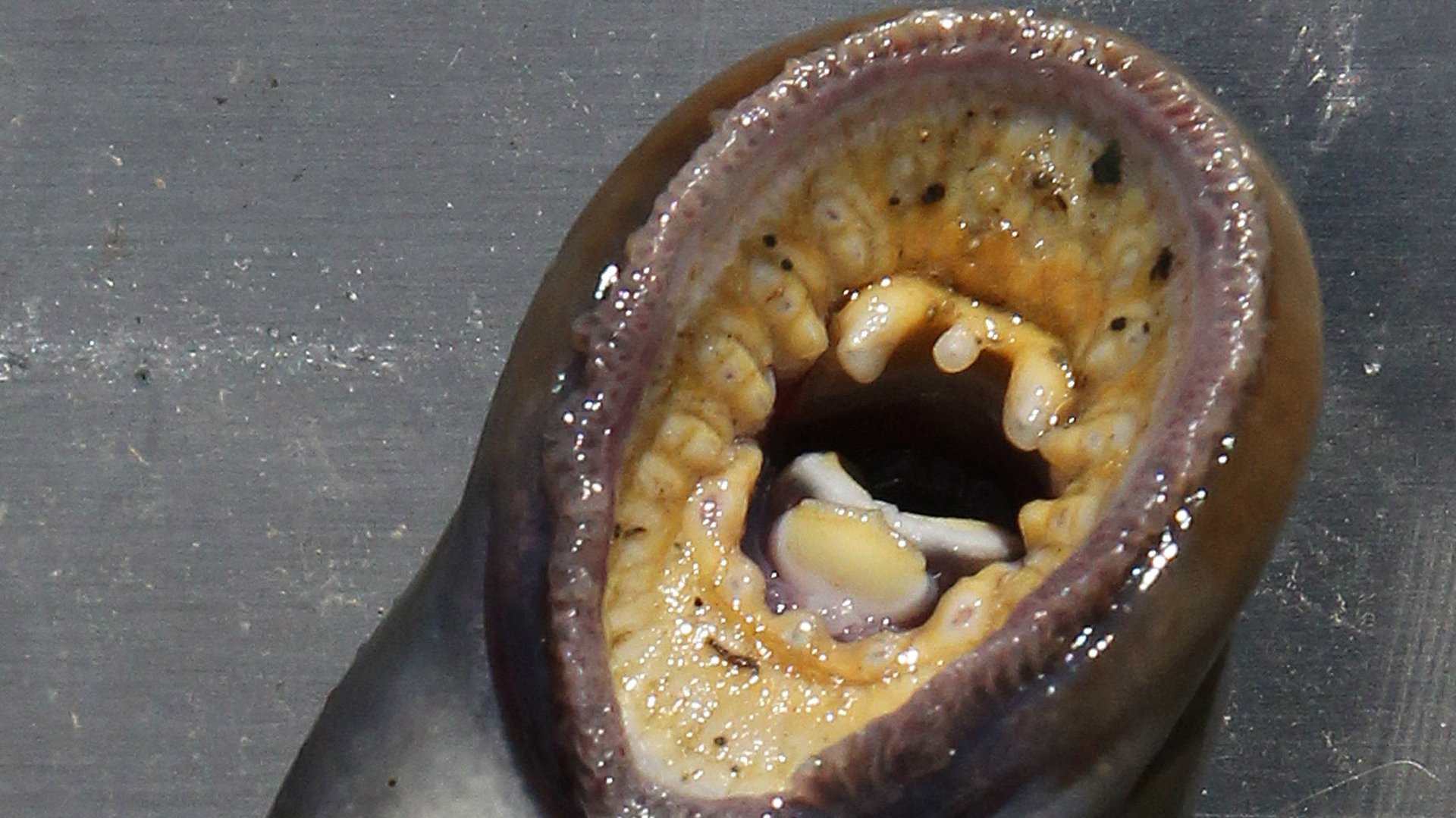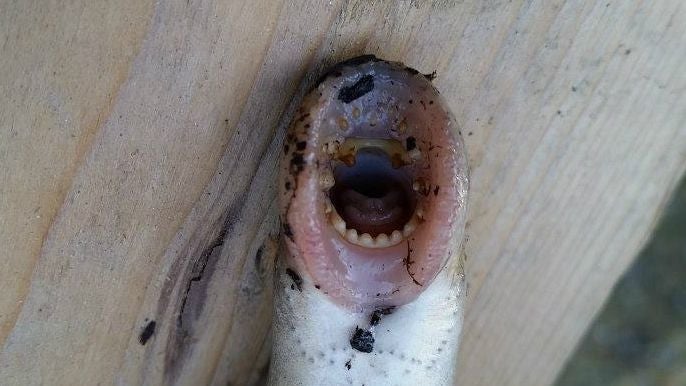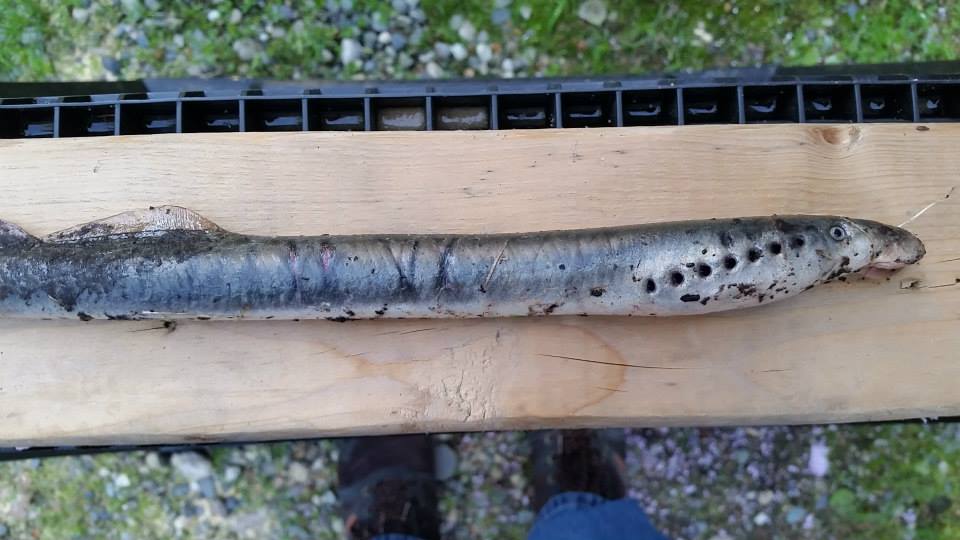Terrifying “vampire fish” are raining down on Alaskans
Look out below, Alaska. Fang-mawed, foot-long fish have been falling from the skies above the town of Fairbanks. So far, residents have found four of these eel-like sea creatures on a front lawn, a Value Village parking lot, and other random places—all far from any water.


Look out below, Alaska. Fang-mawed, foot-long fish have been falling from the skies above the town of Fairbanks. So far, residents have found four of these eel-like sea creatures on a front lawn, a Value Village parking lot, and other random places—all far from any water.

The creature in question is actually an Arctic lamprey, a jawless marine fish that sucks the blood and “body juices” (pdf) of other fish. The key to this gory diet lies in its plunger-like “mouthpart,” as biologists call it, the mouth and tongue of which are lined with dozens of sharp yellow teeth. The mouthpart’s shape allows it to clamp onto fish—salmon, for instance, or sharks. It then uses its teeth and “tongue teeth” to slice and scrape its victim’s flesh until it draws its bloody meal.
Though Alaska authorities aren’t totally sure what’s going on, they have a solid working theory. Hungry gulls are likely scooping adult lampreys—which have returned to a nearby river to spawn—and then dropping them when the squirmy fish prove too unwieldy to fly with, according to the Alaska fish and game department.

Each year, Arctic lampreys—which are native to Alaska—return from the ocean to lay their eggs in freshwater, much like salmon do. Hatchlings grow in riverbank mud until adulthood, whereupon they swim out to sea, returning a few years later to freshwater to spawn and die.

It’s actually pretty amazing; arctic lampreys can swim nearly 2,000 miles upstream. And since their annual migration takes place in winter, it’s often under three feet of ice, explained Erik Anderson, of the Alaska department of fish and game, in a 2007 article.

As it happens, Fairbanks’ light lamprey drizzle isn’t as unusual as it might sound. A similar shower fell on Limerick City, Ireland recently, Earth Touch News reports. One particularly ambitious lamprey was found latched onto this car.